2025 Tsinghua PBCSF Global Finance Forum was successfully held in Shenzhen from May 17 to 18, 2025. Centered on the theme " A Shared Future: Building an Open and Inclusive Economic and Financial System" the forum featured Session XII on the afternoon of May 18, titled "Inclusive Finance for Shared Progress".
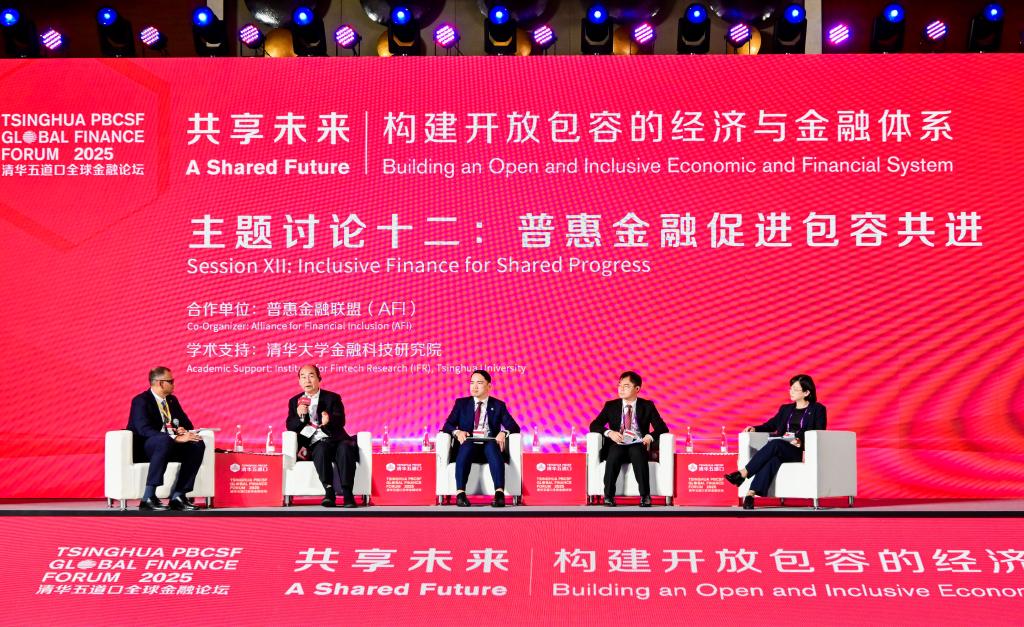
Photo: Panel Discussion
The session, moderated by Ali Ghiyazuddin Mohammad, Head of Policy Management, Alliance for Financial Inclusion (AFI), shared insights from four distinguished panelists: WANG Zhongmin, Former Vice-Chairman of the National Council for Social Security Fund and Chairman of Shenzhen Finance Institute for Financial Stability and Development, Soulysak THAMNUVONG, Deputy Governor of the Bank of the Lao PDR (BOL), PENG Lifeng, Director of the Credit Market Department of the People's Bank of China and Chee Soo Yuen, Deputy CEO & COO of AFI.
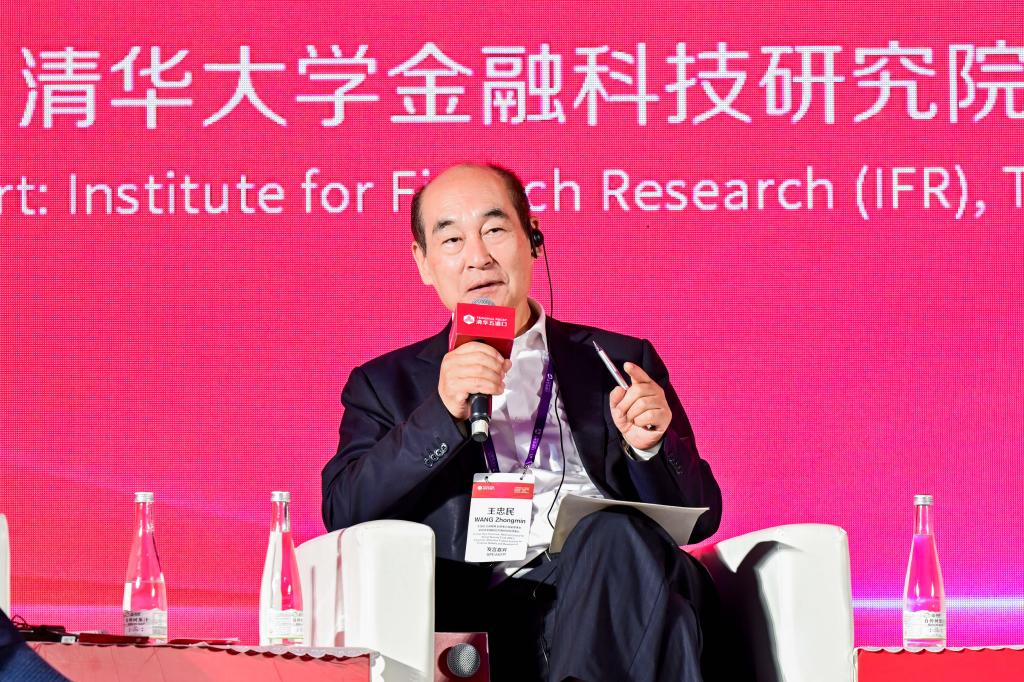
Wang Zhongmin highlighted that shared progress requires maximizing macro and micro economic actors' (enterprises, households) benefits through inclusive and integrated participation. In the AI era, this principle manifests itself in three key scenarios: 1) Open-source technologies reduce societal innovation costs; 2) Cloud service sharing enables zero-cost digital infrastructure access for SMEs, amplifying collective gains; and 3) Digital asset acquisitions and consolidation drives value leaps via "creation from void." He emphasized the synergy between inclusive finance and financial stability, underpinned by blockchain for data security and AI-powered regulatory sandboxes to balance innovation and risk (e.g., digital payments empowering household and SME credit). Citing China’s social security fund strategies—such as early-stage equity investments and AI sector allocations—he advocated for regulators to expand "regulatory sandbox" pilots, fostering open access, competition, and risk boundaries to achieve financial inclusion and economic stability.
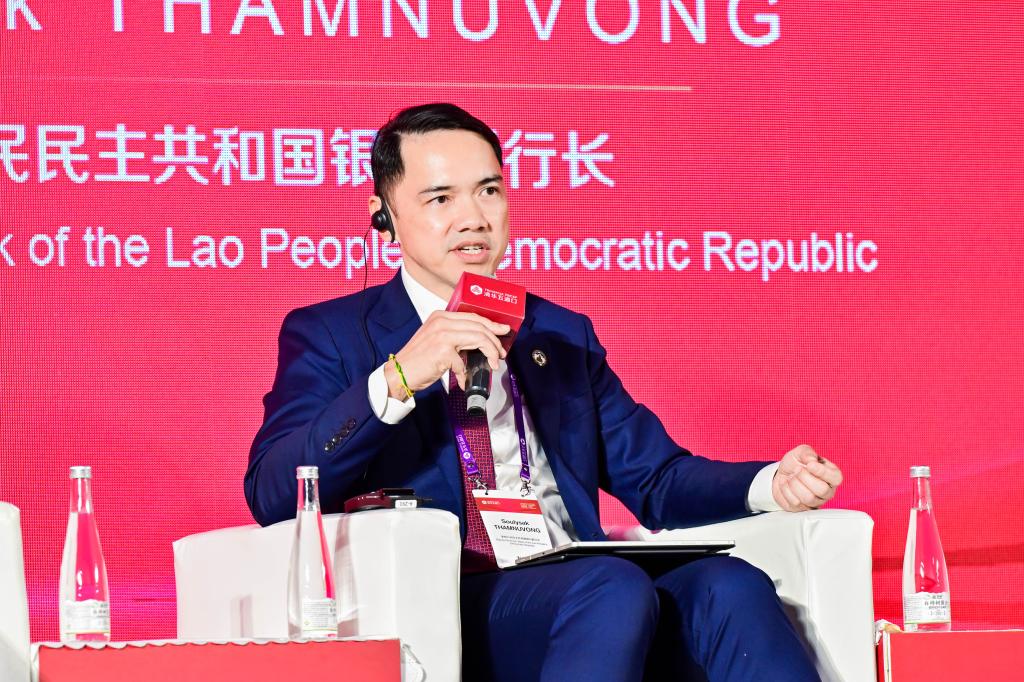
Soulysak THAMNUVONG stressed that shared progress requires equitable access to opportunities. Despite integrating inclusive finance into Laos’ poverty alleviation strategy, financial exclusion rates dropped only 11% over 15 years. Current challenges include limited rural coverage, low financial services utilization among low-income households, dollarization undermining monetary policy, cash dependency hindering data collection, and infrastructure gaps in a market of 7.2 million with sparse financial/telecom service providers.
To address these challenges, Laos’ central bank collaborates with private sectors and consumer associations to align visions, incentivize innovation through supportive regulations, and enhance capacity-building. Over the next five years, Laos will prioritize digital solutions, harnessing the integration of open banking with fintech to deliver low-cost breakthroughs in financial inclusion.
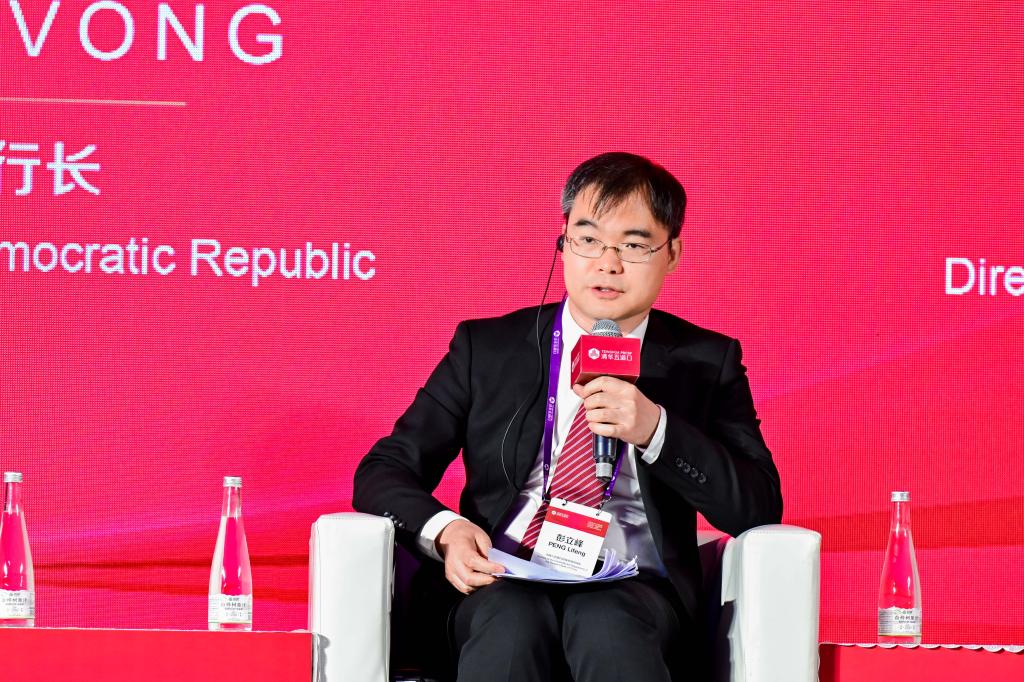
Peng Lifeng emphasized that successful inclusive finance should demonstrate marked progress across six key areas: broader accessibility of basic financial services, enhanced financing convenience for business entities, stronger financial support for rural development, more robust financial consumer education and protection mechanisms, more effective financial risk prevention and control, and improved supporting systems for inclusive finance. China has achieved broad coverage of basic financial services and rapid growth in inclusive financing, targeting SMEs and rural populations under principles of equality and sustainability. The People's Bank of China’s "trinity system" integrates financial literacy, inclusive finance, and consumer safeguards, while strengthening financial literacy campaigns and dispute resolution mechanisms.
To meet the credit needs of underserved groups, it is essential to leverage the combined efforts of the central bank, financial institutions, and complementary institutional frameworks. Moving forward, the Credit Market Department of the PBoC will focus on fostering synergies between inclusive finance and emerging domains like green finance and pension finance. This will involve coordinated planning of "Five Major Areas" of Finance (namely technology finance, green finance, inclusive finance, pension finance, and digital finance), emphasizing collaborative implementation and cultivating incentive-driven policy environments to propel the high-quality advancement of inclusive finance.
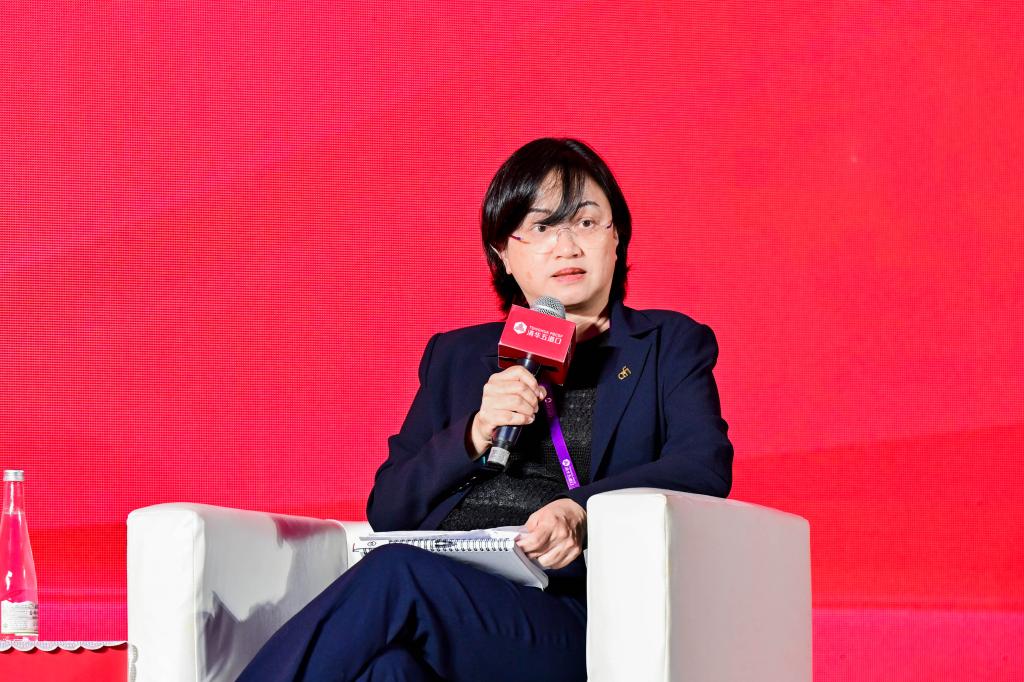
Chee Soo Yuen introduced that AFI is a member-owned network of central banks and financial regulatory institutions in 83 countries—mainly from developing and emerging markets. AFI connects and enables policymakers to develop effective initiatives to advance financial inclusion.
In the AFI context, shared progress means that no country, institution, or community is left behind in the journey toward financial inclusion. Through AFI’s peer learning model, members get to learn solutions from countries that have implemented similar system and policies. To mitigate the digital divide, especially for women, AFI works with member country regulators through a dedicated gender-inclusive finance workstream.
Moreover, AFI's most impactful policy innovations in driving inclusive finance include proactive stakeholder engagement, regulatory sandboxes, interoperable digital payment systems, and proportional regulation with tiered KYC frameworks. To accelerate financial inclusion over the next five years, AFI will prioritize enhanced global dialogue between regulators in emerging and advanced nations and "look east" engagement with other regions, doubling down on solidarity and collaboration amid isolationism.